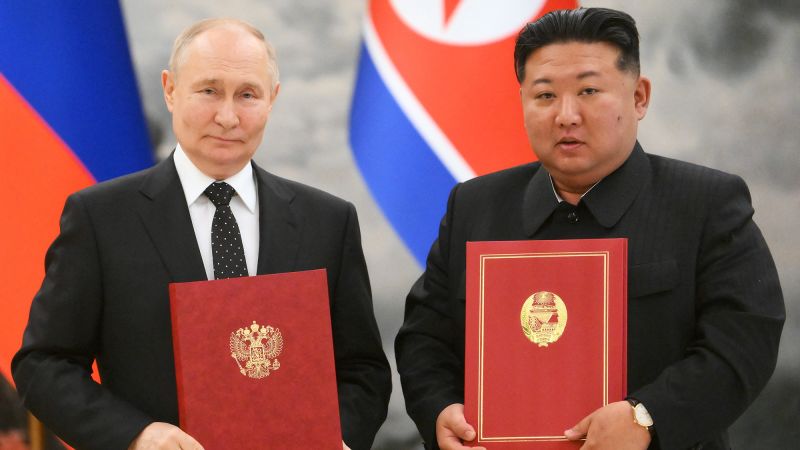
In a significant geopolitical move, Russian President Vladimir Putin visited North Korea on June 19, 2024, where he signed a comprehensive strategic partnership pact with North Korean leader Kim Jong-un. The agreement pledges mutual aid if either country faces aggression and marks the strongest connection between Moscow and Pyongyang since the end of the Cold War.
According to various sources, Putin promised unspecified technological help to North Korea, which could potentially enhance their ability to target adversaries. This comes after Russia and China had been working together to prevent North Korea's nuclear program from growing until the war in Ukraine broke out in 2022.
Kim openly backed Putin's war against Ukraine during the summit, providing him with the strongest foreign support for his invasion. The pact was described as their strongest ever treaty, putting their relationship at the level of an alliance.
The visit and subsequent agreement have raised concerns among Western allies, particularly in light of escalating standoffs between Russia and North Korea with the West. Both countries face international sanctions: Russia for its invasion of Ukraine, and North Korea for its nuclear weapons and missile program.
Despite these tensions, Putin accused the West of violating international responsibilities by delivering F-16s and other weapons to Ukraine. This suggests that Russia may develop military-technical cooperation with North Korea in response.
The implications of this strategic partnership remain to be seen, but it is clear that Putin's visit to North Korea has significantly boosted his image on the global stage and provided him with much-needed support amid increasing international isolation.


